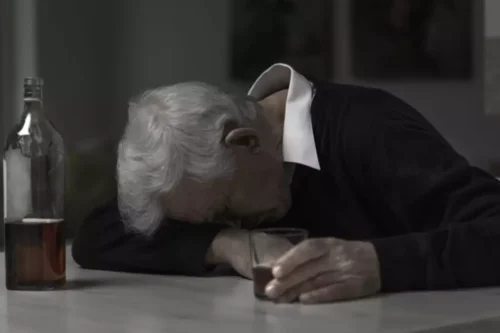
These Halfway house symptoms can occur almost immediately after ingesting beer and should be treated as severe and potentially life-threatening. Beer contains many ingredients, including water, malt barley, brewer’s yeast, hops, and assorted flavorings. While true beer allergies are rare, it is possible to be allergic to one of these ingredients. Histamines are chemicals produced by the human immune system and are found in nearly all tissues of the body. Sudden onset of symptoms may also be caused by a newly developed intolerance. In rare cases, pain after drinking alcohol might be a sign that you have Hodgkin’s lymphoma.

What Type of Beer Is…

Avoidance techniques are important since sulfites, naturally present in many foods, cannot be washed or cooked away. It’s also essential to monitor for symptoms of high hydrogen sulfide levels in the gut, such as wheezing, shortness of breath, and skin reactions. These symptoms could lead to the necessity of using asthma medications or consulting with an allergy specialist. Sulfites, found in some wines, have been known to induce various discomforts in a small percentage of drinkers. Therefore, those experiencing sudden sneezing or other allergy-like symptoms after drinking might be histamine intolerant.
Can other triggers, such as temperature or emotions, contribute to alcohol-induced sneezing?

It’s important to note that a Red Wine Allergy is not the same as an intolerance to red wine. An allergy occurs when something in the wine triggers an immune reaction, while an intolerance takes place when someone has difficulty digesting certain components of why do i sneeze when drinking alcohol the beverage. As such, a person who is allergic to red wine should avoid it altogether and seek medical advice if symptoms persist. For those with histamine intolerance, it is crucial to be aware of how histamines in alcohol affect the body.

Can Alcohol Cause Sneezing Fits?
People with alcohol intolerance or sensitivities to certain ingredients in drinks may experience this more often. Most alcoholic beverages contain histamine, but red wine stands out for its high levels and its ability to promote histamine release. Symptoms of intolerance may include itching, hives, swelling, and difficulty breathing, especially when consuming beer, which also contains histamine. While the body naturally produces histamine, we also consume it through food and drinks that are rich in histamines, including cheese, wine, meats, fish, and fermented foods. Although the main ingredient in beer is water, there are many other ingredients. This generally includes malt barley and brewer’s yeast, along with hops or assorted flavorings.
- These symptoms can vary in severity and typically appear shortly after alcohol consumption.
- This can happen because alcohol dilates blood vessels, making skin appear more flushed.
- These symptoms can occur almost immediately after consuming beer and should be considered severe and potentially life-threatening.
- Investigators found that 83 percent of respondents reported that their symptoms developed after consumption of red wine.
- Symptoms may appear right after drinking or develop later, often resembling flu-like reactions, such as headaches, nausea, and inflammation.
While very rare, allergic reactions to alcohol can be intense, with symptoms overlapping with those of intolerance. Regardless of the nature of the reaction, the best method for managing alcohol intolerance is to avoid alcohol entirely. In severe cases requiring attention, symptoms may escalate to include low blood pressure, rashes, and respiratory distress. Individuals with chronic sinusitis may find that alcohol exacerbates their symptoms. Alcohol can cause blood vessels to constrict and then dilate, leading to nasal passage swelling. Staying hydrated is crucial, as water helps maintain thin mucus, promoting sinus health.
- Reading labels and choosing beverages with lower histamine levels, such as white wine over red wine, may also help limit your response.
- Allergy testing is a safe and effective way to diagnose allergies and can provide relief from uncomfortable symptoms.
- Alcohol can cause congestion because it expands blood vessels, leading to inflammation in your nasal passages.
- It’s important to seek medical advice if you suspect you have an alcohol allergy to manage your symptoms and prevent serious reactions.
- If you have any of the above-mentioned symptoms after consuming alcohol, it is best to stop drinking and seek medical help if necessary.
Sulfites: Another Potential Trigger
If you experience uncomfortable symptoms after drinking beer, there are a few things you can do. If your symptoms are mild, try switching to another brand to see if you can drink it without any issues. Your doctor can prescribe a more powerful antihistamine if your symptoms are severe.
- Molybdenum can help the liver cope with the excess sulphites in your system.
- People with this deficiency metabolize acetaldehyde slowly, leading to its buildup.
- It is crucial to recognize the symptoms early and provide appropriate help, as the condition can escalate rapidly.
- Be sure to tell your doctor if you’re taking any medications or supplements.
- Additionally, you can opt for wine alternatives such as mead or beer which typically contain lower levels of sulfites than wine.